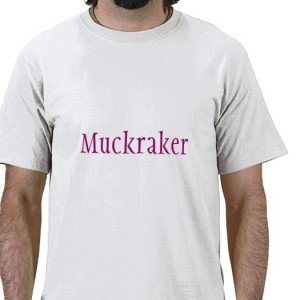Boy howdy, would I like to read more of this kind of interview. Anis Shivani rakes some good muck at Huffington Post.
Eric Miles Williamson is the author of five critically acclaimed books: East Bay Grease (Picador, 1999),Two-Up (Texas Review Press, 2006), Oakland, Jack London, and Me (Texas Review Press, 2007),Welcome to Oakland (Raw Dog Screaming Press, 2009), and the forthcoming 14 Fictional Positions(Raw Dog Screaming Press, 2010). East Bay Grease, a PEN/Hemingway finalist, introduced a radically fresh voice in American fiction, dealing with the agonies of poor people without any failure of courage. Two-Up is a gut-wrenching book about the gory world of the gunite worker (once Williamson's own profession). Oakland, Jack London, and Me is unlike any other recent book of criticism–it is a raw personal response to how the reception of Jack London (always underestimated by critics) reveals more than we wish to know about our cultural blind spots. Williamson's best book to date is his novel, Welcome to Oakland, which picks up on T‑Bird Murphy's travails in East Bay Grease, taking us to his early youth in the ghettoes and garbage dumps of Oakland. If readers have reason to complain that American fiction is too genteel, and generally only an academic exercise to feed bourgeois desires, then they need look no farther than Williamson's fiction for a bracing corrective.
Shivani: There are very few books about the real working class in American fiction, and this has always seemed to be the case, with the rare exception. Nearly all fiction addresses the comfortable middle class. Why is this so? Are there writers addressing themes of work and money at the lower socioeconomic levels that we aren't aware of? Is it a problem with publishers? Or is it a problem with writers?
Williamson: I'd say there have always been books about the American working class. What'sMoby Dick if not a great working-class novel? A group of hardworking sailors enslaved by their position in life, working for the bossman Ahab. It'd be easy to see Huck Finn as a working-class novel as well, except Huck and Jim are even lower on the social ladder than workers, a white trash orphan and his runaway slave friend. Jack London's works surely count as working class, as do the works of Frank Norris, Theodore Dreiser, Upton Sinclair, Sinclair Lewis, Nelson Algren.
To be sure most American fiction addresses the middle class–and, for that matter, most fiction of the Western world addresses the middle class. After all, it's the middle class that usually reads and writes the books.
What's interesting is that these days, in the United States, our working-class fiction is increasingly written by minorities. As educational opportunities open up and as minorities become economically and educationally viable, they're telling their stories. Their works, however, are cast off into the category of "minority" fiction. They're stuck on the Literary Short Bus. Fine authors like Dagoberto Gilb, Mark Nesbitt, even Toni Morrison–they're not called great writers. They're labeled Minority Writers. The blue collar world is usually associated with white people, Irishmen and Italians and Jews and so forth–peoples who were discriminated against in the late 19th and early 20th centuries. But we're not building railroads anymore, and if we ever do so again, it'll be Hispanics and Blacks doing the dirty work, and they'll be writing the novels about their travails.
There are plenty of authors writing what you call working-class fiction. Larry Fondation writes about the underbelly of Los Angeles. Dagoberto Gilb writes about working class Mexicans. Michael Gills's characters are poor white trash from the Ozarks, as are Marc Watkins'. There's Glenn Blake, who writes about people who work in used car lots and the oil refineries of East Texas. M. Glenn Taylor's books are set in the coal mine country of West Virginia. Paul Ruffin's characters are just regular working-class people.
There's actually been a resurgence of working class-authors in America, resulting from the cheapness of a university education for people who went to college before the Reagan administration. We got to college for practically nothing. This ain't so today. These poor kids have to shell out ten grand a year to go to a crappy state school. They won't have the luxury of writing books. They'll be too busy being corporate automatons, slaving away to pay back their student loans, America's version of indentured servitude. We'll be back to nothing but middle-class fiction in no time. For now, though, we'll have another 20 years of really good work by people who in the past wouldn't have been educated, and in the future won't be either. We're in the heyday right now.
It isn't the fault of publishers that our working-class authors aren't on the Wal-Mart bookshelves. Publishers are in business to make money, and working-class books don't sell. Because working-class people don't read. The sales of today, however, don't matter at all if the project is to create Art. Working-class writers are publishing on small presses, but history won't care where a book was originally published, and I venture that when the critics of the future look back at us, many of these writers will find their place in the canon.
Many of the writers here I'd not heard of or not heard enough of, so I blew some of my middle-class paycheck at Amazon to correct that. You should too, wherever you buy books.






